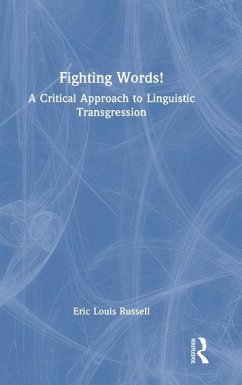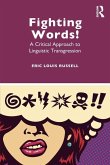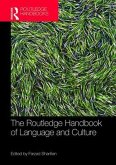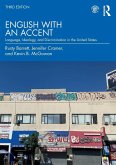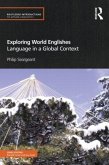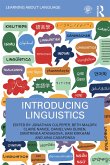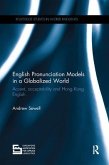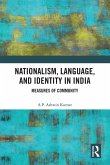Fighting Words! is a critical exploration of all kinds of "bad language" and how that language shapes, reinforces, or subverts identity, ideology, and power. Eric Louis Russell expertly investigates facets of taboo language, drawing on diverse interdisciplinary material to define key concepts and using them to examine the complex dynamics behind a wide range of examples from popular culture, from Donald Trump's controversies to Cardi B and Megan Thee Stallion's WAP.
What emerges from this analysis is the intersectionality of how language is performed and how it contributes to the shaping of identity and simultaneously shapes and is shaped by social attitudes, cultural assumptions, and systems of power with regard to race, sexuality, and gender.
With fascinating "A Closer Look" boxes and a rich array of pedagogical features, this is the perfect text for advanced students and researchers in sociolinguistics, linguistic anthropology, and related fields.
What emerges from this analysis is the intersectionality of how language is performed and how it contributes to the shaping of identity and simultaneously shapes and is shaped by social attitudes, cultural assumptions, and systems of power with regard to race, sexuality, and gender.
With fascinating "A Closer Look" boxes and a rich array of pedagogical features, this is the perfect text for advanced students and researchers in sociolinguistics, linguistic anthropology, and related fields.
"In a single accessible, readable, and relevant volume infused with wry humor and keen insights, Fighting Words! offers readers an indispensable primer on topics ranging from linguistic anthropology and sociolinguistics to political correctness and cancel culture. Beginning with a focus on "bad" language, the volume invites the reader to question, reexamine, and reimagine the very construct of what language is, imploring us to consider language as a verb: to language. To help his readers question the language that permeates the contemporary sociopolitical space, Russell skillfully embeds his analysis of transgressive languaging acts in engaging, relevant contexts: the Trump years, overheard conversations, rap music, and the ubiquitous "Karens" who dominate social media. Via these rich and provocative examples, Russell encourages the reader to examine these linguistic transgressions more thoughtfully and critically. Discussion Questions and Suggestions for Further Reading are provided at the end of each chapter, providing not simply "food for thought," but rather provocative and insightful stimuli for difficult conversations. Fighting Words! is essential reading for a divided nation of people struggling, but often failing, to understand each other." Thomas Jesús Garza, The University of Texas at Austin, USA
"Both accessible and intellectually rigorous, this fascinating and thought-provoking analysis of linguistic transgression draws on recognizable and culturally salient examples to explore how "bad language" comes to be judged as "bad" in specific sociocultural settings, and how this "badness" is enacted, policed, reclaimed, and resisted. Throughout the book, Eric Russell expertly guides the reader through foundational and often complex concepts in linguistics, semiotics, and discourse studies. Fighting Words!, written with both academic seriousness and a perfect dose of humor, offers a fresh look at taboo language, and is a must-read for all students and scholars interested in meaning-making at the intersection of language, discourse, and culture." Dominika Baran, Duke University, USA
"Both accessible and intellectually rigorous, this fascinating and thought-provoking analysis of linguistic transgression draws on recognizable and culturally salient examples to explore how "bad language" comes to be judged as "bad" in specific sociocultural settings, and how this "badness" is enacted, policed, reclaimed, and resisted. Throughout the book, Eric Russell expertly guides the reader through foundational and often complex concepts in linguistics, semiotics, and discourse studies. Fighting Words!, written with both academic seriousness and a perfect dose of humor, offers a fresh look at taboo language, and is a must-read for all students and scholars interested in meaning-making at the intersection of language, discourse, and culture." Dominika Baran, Duke University, USA

